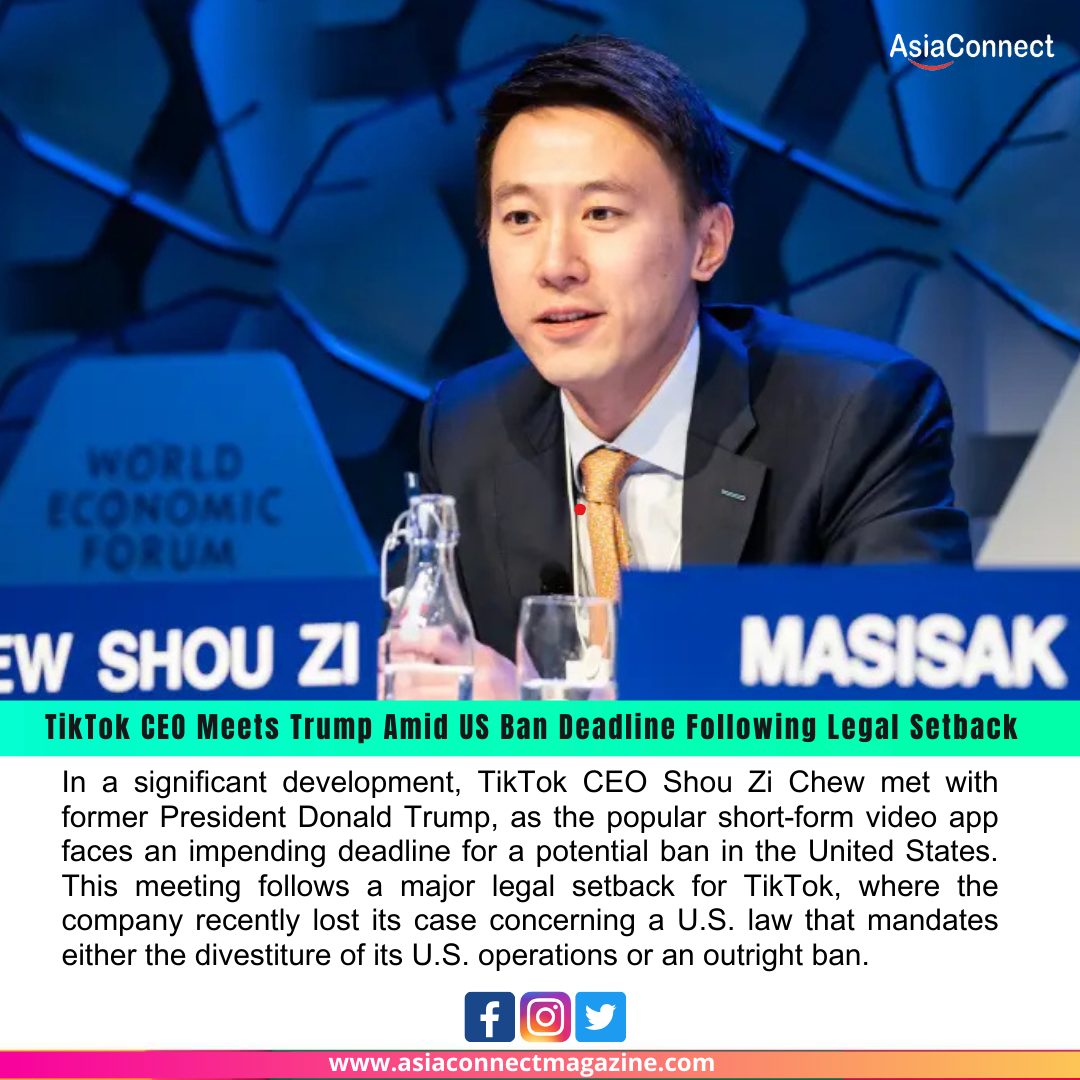In a significant development, TikTok CEO Shou Zi Chew met with former President Donald Trump, as the popular short-form video app faces an impending deadline for a potential ban in the United States. This meeting follows a major legal setback for TikTok, where the company recently lost its case concerning a U.S. law that mandates either the divestiture of its U.S. operations or an outright ban.
TikTok, owned by the Chinese tech giant ByteDance, has been under intense scrutiny from the U.S. government due to national security concerns, with accusations that the app could potentially be used by the Chinese government to gather sensitive data on American users. The Trump administration first raised alarms over TikTok’s operations in 2020, leading to an executive order aimed at banning the app unless it was sold to an American company. However, legal challenges have delayed any action, and as the deadline approaches, the situation has escalated.
The recent legal ruling, which rejected TikTok’s challenge to the law, has intensified concerns about the future of the app in the U.S. This ruling reinforces the government’s position that TikTok must either sell its U.S. business to an American company or face a complete ban in the country. The legal defeat represents a significant blow to TikTok’s efforts to protect its operations in the U.S., where it has over 100 million active users.
In light of the deadline and the growing pressure, Shou Zi Chew’s meeting with Trump has sparked widespread speculation about possible solutions to the ongoing standoff between the app and U.S. authorities. During the meeting, which took place behind closed doors, both parties are believed to have discussed potential compromises or paths forward to prevent a full ban. Although details of the conversation have not been publicly disclosed, the meeting signals that TikTok is exploring every possible avenue to maintain its presence in the U.S. market.
Trump, who has been a vocal critic of TikTok in the past, has expressed concerns over the app’s links to China, but it remains unclear whether the former president is open to a negotiated solution or a complete divestiture. Some have speculated that a sale to an American company, such as Microsoft or Oracle, could be a possible resolution, but such a deal would require approval from both the U.S. government and the Chinese authorities, further complicating the matter.
For TikTok, the potential U.S. ban represents a massive business risk. The U.S. is one of its largest markets, and losing access to its millions of users would significantly impact the company’s growth trajectory and revenue. Furthermore, the legal challenges in the U.S. could set a precedent for other countries to impose similar restrictions, especially as concerns about data privacy and foreign influence continue to grow.
The outcome of this high-stakes meeting and the upcoming legal developments will have far-reaching implications for TikTok’s operations and for the broader global tech landscape. If the app is forced to either divest its U.S. business or face a ban, it could signal the beginning of a new era of regulatory challenges for Chinese tech companies operating abroad.
In conclusion, TikTok’s battle to maintain its U.S. presence remains a pivotal moment for the company and the broader tech industry. With legal challenges mounting and the deadline fast approaching, the meeting between TikTok CEO Shou Zi Chew and former President Trump adds another layer of complexity to the ongoing saga, with both parties likely exploring ways to avoid a full ban and find a resolution that satisfies U.S. national security concerns.





